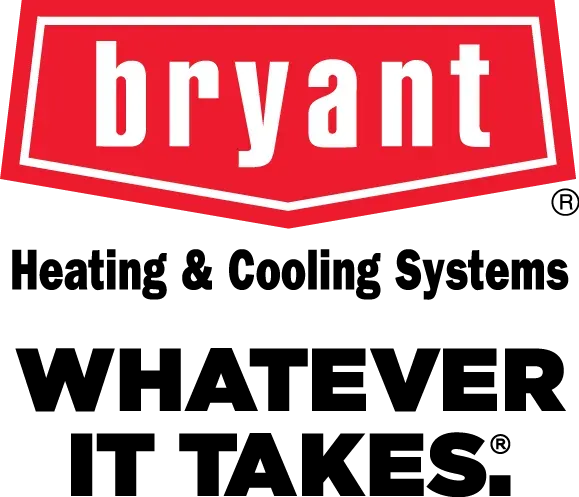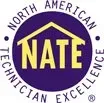HVAC FREQUENTLY ASKED QUESTIONS
INDOOR AIR QUALITY FAQs
-
How important is humidity to my home?
Keeping your home at ideal humidity levels is critical to the health and comfort of your family. Whether heating your home in the winter or just a normal day here in Nevada, dry air can feel like a way of life. But extremely dry air can damage the woodwork and furniture you have in your home, zap the moisture from your skin, and contribute to health problems. Guidance from industry research has shown that humidity levels in homes should be between 35-50%. Adding this much-needed moisture will make your home a healthier and more comfortable place to spend time. Contact us, and we would be happy to discuss your solutions for dry air, such as a humidifier.
-
Should I be concerned about carbon monoxide (co)?
Carbon monoxide, also known as the silent killer, can pose a serious threat in some instances. Too much, and it can lead to carbon monoxide poisoning. Because gas furnaces produce CO, it is yet another reason to have your furnace inspected annually by Coastal Aire. And if you don’t have a carbon monoxide detector, we highly recommend it. It is a wise safety investment. Coastal Aire offers a high-quality carbon monoxide detector that comes with a warranty.
-
I have friends and relatives that have installed ultraviolet (uv) lights on their furnace. What are they for and why do I need one?
UV is the abbreviation for ultraviolet. In heating and cooling systems, UV lights can be installed in the return air ductwork and by the indoor cooling coil. The ultraviolet air treatment system continuously emits high-intensity ultraviolet (UV) energy. The energy eliminates (kills) a very high percentage of airborne bacteria and germs passing over the UV light field inside the ductwork. The UV light mounted next to the indoor cooling coil will help eliminate the growth of mold, mildew, and other contaminants from the drain pan and coil surface. If you are interested in UV lights, Coastal Aire can recommend an environmentally friendly, high-quality UV light system for your ductwork.
-
What’s that black stuff on my ceilings and vents?
Burning candles can be the culprit for the black on your walls and ceilings and polluting the air your family breathes. Keep wicks trimmed to no longer than 1/4th of an inch to help reduce soot from the candles. But if you have concerns, call us anytime, and our team will come and take a look.
HVAC TROUBLESHOOTING & SERVICE FAQs
-
After my air conditioner runs for a while, ice forms on the coil outside and it stops cooling. What could be the problem?
More than likely, it’s either low on refrigerant or low on airflow. As a homeowner, replace your filter and allow the unit to thaw out. If the problem reoccurs, call Coastal Aire to schedule an AC repair. We recommend annual air conditioner maintenance to keep your systems in peak operating conditions. Ask your Coastal Aire representative about our energy-saving maintenance agreement program.
-
Why is the upstairs of my house always hotter in summer and cooler in the winter when I only have one unit? What should I do?
Assuming the system is the correct size, one option is a zoning system. As another option, sometimes the addition of return air ductwork will help improve air movement and help make upper levels more comfortable. Our team can evaluate your system and provide our professional recommendation on the best solution for uneven temperatures.
-
During the winter the fan occasionally shuts off on my heat pump outside unit, then restarts with a big puff of smoke. What is wrong with it?
Nothing is wrong with your unit. What appears to be smoke is steam from the outdoor coil after it completes a defrost cycle. After extended run times, the outdoor unit will start to build frost or ice on the coil. A heat pump will go into a defrost mode when needed to clear the ice away and keep the efficiency level up.
-
Why is my unit blowing warm air when the AC is on?
These can be due to clogging issues, electrical problems, low refrigerant, evaporator coil malfunctions, or compressor problems. If you've ever had the ac system in your car stop functioning, it's often due to a refrigerant leak or dirty coil.
HVAC EQUIPMENT AND INSTALLATION FAQs
-
How big of a furnace or air conditioner do I need for my home?
The only way to determine the size of a furnace or air conditioner for your home is to do a heat load calculation. The size (also known as capacity) required is based on how quickly your home gains or loses heat, not by square footage alone. ACCA’s Manual J is an industry-approved method that Coastal Aire uses to ensure the proper system is selected for you.
-
What is SEER?
SEER stands for “Seasonal Energy Efficiency Ratio”. Basically, it tells you how efficiently an air conditioner converts electricity to cooling comfort. The higher the SEER rating, the more efficient the system. By federal law, all new units must be a 14 SEER or higher. Local HVAC Services recommends having a Comfort Consultant to come to your home and perform a heat load calculation to ensure the proper size unit is installed. This is a free service to our customers that may help you save money and increase your indoor comfort.
-
What is AFUE?
AFUE stands for “Annual Fuel Utilization Efficiency”. This rating tells you how much of your heating dollars are converted to heat energy put into your home and how much is lost up the flue pipe. Older furnaces are 50% to 60% efficient. That means that for every dollar you spend for gas from your utility company, $.40 to $.50 cents is being sent up the flue pipe to the outdoors. Federal law mandates that all furnaces being produced today be at least 80% efficient. Local HVAC Services offers several sizes of furnaces up to 96% efficient. That means that for every dollar you spend on gas from the utility company, $.96 is converted to heat your home and only $.04 is sent out the flue pipe. A Local HVAC Services Comfort Consultant can visit your home, perform a heat load calculation and recommend the proper system to keep you comfortable and save you money. In many cases, homeowners have saved enough on their utility bills to more than cover the investment of a new comfort system.





